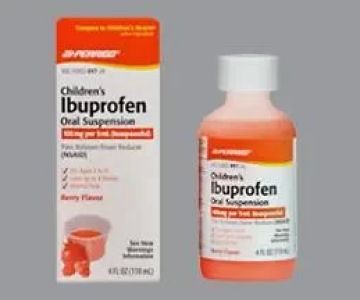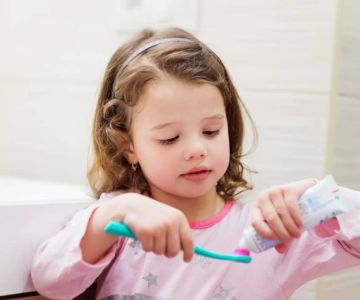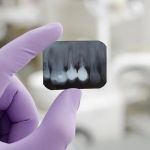How Does Oral Hygiene Affect Children?
Good oral hygiene is crucial for everyone, but it is especially important for children. The habits they develop at a young age often set the stage for their overall health as they grow. Proper oral hygiene helps children avoid dental problems, including cavities, gum disease, and bad breath. But how exactly does oral hygiene affect children, and why is it so essential to start early? In this article, we will explore the long-term effects of poor oral hygiene in children, the importance of instilling good habits, and what parents can do to ensure their children’s oral health is well taken care of.
Understanding the Impact of Oral Hygiene on Children's Health
Oral hygiene doesn’t just involve brushing teeth; it encompasses a variety of practices that contribute to the health of a child's mouth, teeth, and gums. Poor oral hygiene can lead to a range of issues, some of which can have lasting effects on a child’s overall health and well-being. Oral health plays a more significant role than many parents might realize. When children neglect their oral hygiene, the consequences can go beyond cavities and gum disease. Over time, these issues can affect a child’s ability to eat, speak, and socialize comfortably.
One of the most common issues resulting from poor oral hygiene in children is tooth decay. According to the Centers for Disease Control and Prevention (CDC), tooth decay is one of the most chronic conditions among children in the U.S. Left untreated, cavities can cause pain, infection, and even tooth loss. Beyond that, poor oral hygiene can also affect speech development and overall self-esteem, as children may feel self-conscious about their teeth. As children grow older, the effects of poor oral hygiene can extend to more serious conditions, such as gum disease, infections, and misalignment due to cavities or abscesses.
Long-Term Consequences of Poor Oral Hygiene in Children
The effects of neglecting oral hygiene in childhood can last well into adulthood. Children who do not maintain good oral hygiene are at a higher risk of developing serious dental issues as they grow. Early dental problems often have a domino effect that continues into their teenage and adult years. Let's dive deeper into some of the most significant long-term consequences:
- Cavities and Tooth Decay: Without proper brushing, plaque and bacteria build up on a child’s teeth, leading to cavities. The CDC reports that nearly 20% of children aged 5-11 years have untreated cavities in their permanent teeth. This can result in pain, difficulty chewing, and the need for fillings, root canals, or even tooth extractions as the child grows.
- Gum Disease: Poor oral hygiene can lead to gum disease (gingivitis), which causes inflammation of the gums. If left untreated, gum disease can progress to periodontitis, which may result in tooth loss and an increased risk of other systemic health conditions such as heart disease.
- Speech Issues: Children who experience dental issues, such as cavities or misaligned teeth, may have difficulty pronouncing certain words. This can affect their speech development and social interactions, potentially leading to speech therapy or difficulty in school.
- Self-Esteem and Social Challenges: Children who have visible dental problems may become self-conscious about their appearance, leading to feelings of insecurity and social withdrawal. This can affect their ability to interact with peers and participate in social activities.
Overall, poor oral hygiene in childhood can result in a host of long-term problems that may affect a child’s dental, physical, and emotional health. These issues can be avoided by establishing good oral hygiene practices early on and maintaining them throughout childhood and beyond.
Why Is It Important to Start Oral Hygiene Early?
Starting oral hygiene early is one of the most important steps parents can take to ensure the health of their children's teeth and gums. The American Academy of Pediatric Dentistry recommends that children begin brushing their teeth as soon as they have their first tooth. This habit not only helps to prevent tooth decay but also helps children become accustomed to taking care of their teeth from a young age.
For infants and toddlers, parents should gently clean their baby’s gums with a soft cloth or infant toothbrush even before teeth appear. Once teeth start coming in, brushing with a child-sized toothbrush and fluoride toothpaste is essential. However, it’s important that parents supervise their child’s brushing until they’re around 7-8 years old to ensure it is done properly.
Instilling the value of oral hygiene early on helps children understand the importance of taking care of their teeth as they grow. This foundation is critical as they approach their teenage years when habits like smoking, drinking sugary drinks, and snacking between meals may lead to more significant dental challenges. Having a strong sense of oral health practices can help children avoid these pitfalls and maintain their smile well into adulthood.
Common Oral Hygiene Mistakes Parents Make
Even with the best intentions, some parents unknowingly make mistakes when it comes to their child’s oral hygiene. Here are some common missteps and how to avoid them:
- Not Brushing Long Enough: Many children may brush their teeth for a few seconds and think they’re done. However, it is essential that children brush for at least two minutes to remove all plaque. Using a timer or a song can help them stay on track.
- Forgetting to Floss: Flossing is just as important as brushing, but many children and adults alike skip this step. Flossing helps remove food particles and plaque from between teeth that a toothbrush can’t reach. Parents should start flossing their child’s teeth once they have two teeth that touch.
- Using Too Much Toothpaste: Parents should use only a pea-sized amount of fluoride toothpaste for children. Using too much toothpaste can cause excess fluoride to be ingested, which can lead to fluorosis, a condition that affects the development of teeth.
- Not Visiting the Dentist Regularly: Children should visit the dentist for a check-up every six months, starting at age one or when their first tooth comes in. Regular dental visits ensure that issues such as cavities, misalignment, and gum disease are detected early and treated appropriately.
How Parents Can Support Their Children's Oral Health
As a parent, you play a key role in setting the foundation for your child’s oral health. Here are a few ways you can support good oral hygiene:
- Set a Good Example: Children learn by watching their parents. Make sure you model good oral hygiene habits by brushing and flossing regularly. This shows them that dental care is important and can help them develop similar habits.
- Make Brushing Fun: Make brushing a fun activity by using colorful toothbrushes, flavored toothpaste, and songs. There are even apps and games designed to make brushing fun for kids!
- Limit Sugary Snacks: One of the biggest contributors to tooth decay is sugary food and drinks. Help your child make healthier food choices by limiting sugary snacks and drinks. Encourage water over soda, and snacks like fruit or nuts instead of candy.
- Schedule Regular Dental Visits: Ensure your child sees a pediatric dentist regularly. These visits help detect problems early and provide an opportunity for professional cleaning and fluoride treatments.
By being proactive and supporting your child’s oral hygiene, you can help them develop healthy habits that will last a lifetime.
Oral hygiene is a crucial aspect of your child’s overall health. Establishing good habits early on can prevent dental problems and help your child avoid the long-term consequences of poor oral hygiene. For more tips and to schedule your child’s dental check-up, visit Dentistry Toothtruth for expert care and recommendations tailored to your child’s needs.






 Vaksman Dental Group4.0 (309 review)
Vaksman Dental Group4.0 (309 review) Dove Family Dentistry5.0 (658 review)
Dove Family Dentistry5.0 (658 review) John J. Roche Orthodontics5.0 (21 review)
John J. Roche Orthodontics5.0 (21 review) Community Health Center of Snohomish County - Everett-North Clinic4.0 (960 review)
Community Health Center of Snohomish County - Everett-North Clinic4.0 (960 review) Hall Orthodontics5.0 (150 review)
Hall Orthodontics5.0 (150 review) Triplett & Livingston Dental5.0 (964 review)
Triplett & Livingston Dental5.0 (964 review) The Importance of Oral Health Education During Pregnancy for a Healthy Pregnancy
The Importance of Oral Health Education During Pregnancy for a Healthy Pregnancy Best Tips for Brushing Your Teeth Properly for Healthy Gums: Essential Techniques for Oral Health
Best Tips for Brushing Your Teeth Properly for Healthy Gums: Essential Techniques for Oral Health Why Skipping Dental Checkups Can Lead to Bigger Oral Health Problems
Why Skipping Dental Checkups Can Lead to Bigger Oral Health Problems Advantages of Porcelain Dental Restorations
Advantages of Porcelain Dental Restorations How Can Diabetes Cause Tooth and Gum Problems? Preventing and Managing Oral Health Issues
How Can Diabetes Cause Tooth and Gum Problems? Preventing and Managing Oral Health Issues Healthy Habits for Promoting Good Oral Health and Hygiene: Tips for a Healthy Smile
Healthy Habits for Promoting Good Oral Health and Hygiene: Tips for a Healthy Smile